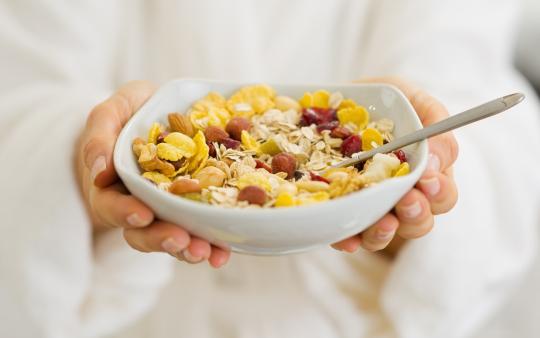A well known secret that falls under the umbrella of nutrition is a field called bio-circadian eating, also known as the bio-circadian rhythm diet. Many people have heard of bio-circadian rhythms and subscribe to the idea of following the natural inclinations of nature to direct our everyday habits for optimal health. For example, does it make sense to force yourself to stay up later than your body signals dictate by watching a movie after 10 p.m.? If you are not sure, I invite you to go to sleep in a dark room by 10 p.m. and begin to notice how you feel.
To address most health challenges, it's important to move towards a routine where you more or less get up when the sun rises and go to bed when it sets. The same principle applies to eating. The bottom line is, when you eat is as important as what you eat if you want to lose weight, clear brain fog, gain energy, or reduce pain and inflammation in the body. To do this, you will want to align yourself with natural rhythms of nature as best you can and pay attention to cues. Of course, this practice isn't a cure-all or meant to be used in isolation but if you have implemented other healthy strategies and aren't getting the results you want, this could be the key.
How does bio-circadian rhythm eating work?
For starters, clearly defined feeding and fasting cycles create robust metabolic and biochemical rhythms.
Morning:
The temperature of the body naturally rises in the morning to prepare for reassuring the metabolic system. If we don't eat in the a.m. our metabolism slows down, we store fat, and don't build any muscle because the body thinks we may be entering starvation mode. This is a survival response and produces an overhaul of cortisol, which is a stress response. When the body is in stress it puts on or holds onto excess weight, we age prematurely, have sleep issues, and can experience other challenges. Adding specific adaptogenic herbs to your diet may also help regulate stress.
Mid-day:
Lunchtime is also critical. Have you ever eaten at your desk without connecting to your food, because you are looking at the computer screen or worse yet skipped lunch altogether? This is a recipe for disaster as this action will negatively impact how you digest and ultimately absorb your food. You are also missing your peak metabolic window, which is approximately 12:00 p.m. to 1:30 p.m. in the afternoon says Guy Murchie in his book, "The Seven Mysteries of Life".
Evening:
Our ability to burn calories is lower in the evening so breakfast and lunch are critical. The exact same large meal eaten at 8 p.m. places more of a caloric load on the body than if you ate it at lunch.
What often happens for folks that skip breakfast and eat lunch quickly?
More than likely you will consume a big meal at night. In this scenario, much of the metabolic energy that is usually spent on maintenance, detoxification, repair, and growth is unfortunately rerouted into digestion. With an excess of blood flow focused on processing your meal as you sleep, you'll most likely wake up feeling congested and heavy because you didn't detoxify fully during the night. Can you see how this can cause a whole host of unhealthy symptoms?
In other words, we have it backward. When you switch and eat more in the am and afternoon and light in the evening, you'll then do what you were meant to do while sleeping – healing, detoxifying, and rebuilding. To accomplish this, you may need to retrain your body and reorient your lifestyle. As a Master Health Coach, this is something I help my clients accomplish, and it doesn't have to be hard.
Take home message: Follow the innate rhythms of your body and eat your biggest meal when the body can optimally digest and calorie burn when the sun is at its apex in the sky. Have a more robust breakfast, a scrumptious lunch, and a relaxed dinner while eating slowly, chewing your food well, and bringing in love and pleasure to the experience. Don't forget to eat whole foods in moderation and you got a recipe for success. Lastly, allow your body to fast for at least 12 hours, say from 6 p.m. to 6 a.m. so that your body can pause.
See below for a sample menu (quantity depends on current weight, height, and goals). Contact me for a FREE Stop the Struggle Discovery Session to explore what your individual body needs.
Breakfast: 16 - 24 ounces of green smoothie (Find more recipes in Hidden Treasures: Sneaking Love and Health into Every Bite)
Midmorning snack for adrenal support: 1 apple, 5 dates, and 2 celery sticks
Lunch: Large salad with unlimited colorful vegetables, quinoa or potatoes, and tahini miso lemon dressing
Snack: licorice tea with dark chocolate (carob if you are sensitive to caffeine) sweetened with stevia or coconut sugar
Dinner: Lentil and Sweet Potato Soup
Now that you know about bio-circadian rhythm nutrition, learn about agni, the Ayurvedic approach to digesting your food.






